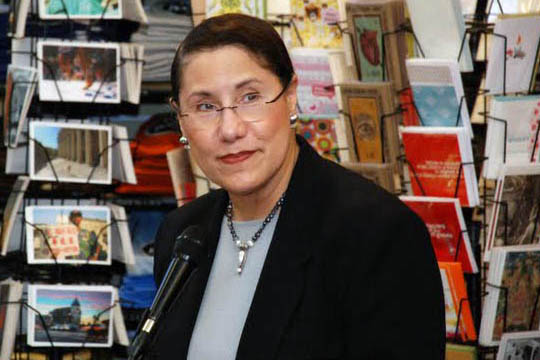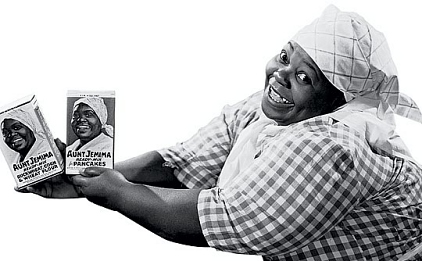
When we posted the Respectability Politics Round Table, Black beauty blogger and sex worker Peechington Marie immediately spoke up on Tumblr with a well-justified critique: Why, given that the term “respectability politics” itself originated within Black feminist scholarship, did the round table not include any Black sex workers as participants? We apologized for having this kind of Oh Shit Moment and asked Peechington Marie to write a short addendum to the round table elaborating on the history of the concept within the Black community and how respectability politics affect Black sex workers.
We call it “respectability politics,” but when the phrase was first coined in 1994, it was called “The Politics of Respectability” and was used by Evelyn Brooks Higginbotham as a chapter title in her book Righteous Discontent: The Women’s Movement in the Black Baptist Church, 1880-1920. But respectability politics, even before Ms. Higginbotham called them by name, affected every African American person in one way or another, and still affect us today. Try asking a Black friend of yours: “Do you know anyone who goes out in public with curlers in their hair?” and you’ll likely get an earful, maybe about why they absolutely don’t know anyone who would do that (except for their great aunt who always acted like she never had home training anyway).
Being respectable in the early Black community meant behaving in a way that would not embarrass yourself or other Black people. For example, The Baptist Women’s Convention used to visit poor Black folks, giving them pamphlets with titles like “How To Dress” and “Take A Bath First.” This was done to educate working class people on what were both the accepted and acceptable social norms established by wealthier Black communities. No one wanted their cousin LeRoy or his wife to show up to a church function improperly dressed or without their manners, and so the politics of respectability were born.
But it wasn’t only about Black people wanting the best for other Black people. No, it was also about showing White people in America the well-mannered face of Negro Respectability. It was pushing forward an idea, a hope, a compulsion to be Just As Good As White Folks. It was about showing ourselves and White people that we were as mannered, clean, and well spoken as they were—showing them we were human, too. It was a complex topic then and it still is now:
- Think of the Don Lemon debacle a few months ago, when he exhorted other black men to better their lives by not sagging their pants, using the n-word, having children out of wedlock, littering, and dropping out of high school.
- Read this amazing interview of Deon Haywood here on Tits and Sass, in which she discusses how respectability politics affect street sex workers, especially street sex workers of color.
- Take a look at this blog post by AllInTheSand, in which they go over more of the history of respectability politics in Black communities in the context of the great migration of Southern Blacks to northern cities and discuss how to counter these hurtful ideas.
Respectability Politics as a whole aren’t centralized to Black American communities now, because they never were in the first place. What is particularly Black-Centric about them, however, is less the who and more the why. When we speak of Respectability, Black Americans must be included in the conversation because it is our community that began the analysis of these ideas and it is in our community that these principles first manifested themselves.

Respectability politics play a mammoth role in the day-to-day lives of Black sex workers. For generations, Black women have suffered hateful assumptions about our sexuality, plagued by the expectations of others placed on us that we must be one of many stereotypes: the oversexed, animalistic beast who just can’t get enough; the jovial, fat, dark-complected Aunt Jemima type who will never be desirable or desire anyone; or one of the above with added “she keeps having kids just to be on welfare” stigma. These caricatures of Black women are so ingrained in our collective consciousness that we cannot escape them. While a white woman may choose to embrace her sexuality, a Black woman is seen as wanton and unforgivable—we are less than worthless in this instance. The fat Black woman has much to contend with as well: She is never a lover, always unloved. No man wants her (no woman does, either). Mammy—you’ve seen her portrayed in a million movies as the Very Fat, Very Dark, Very Loud Black woman who cannot and will never be seen as sexual except for comedic effect—chases behind us, even in this day of fat and body acceptance and body agency, snapping at our heels while she wears her trademark red head scarf. From Mammy to Jezebel, from Sapphire to Cassandra, literal tomes have been written by Black people to educate us and assist us in fighting these dangerous ideas that deem us both hyper- and asexual, constructing our sexualities as a pox both on ourselves and those who dare to love us.
But, ironically, even within writings deconstructing the tropes of femininity that plague Black women, the concept of respectability remains: When Jezebel is written about, it is nearly always from the vantage point that Prostitutes Are Bad, and Just Because I Like Sex Doesn’t Make Me A Slut, Respect My Bodily Autonomy and Agency. The truthfulness of the statement regarding autonomy and agency notwithstanding, what’s harmful is how often Black women who are prostitutes (or whatever job we do in the sex trades/label we choose for ourselves) are unable to be taken seriously. From the moment of outing ourselves, being outed, or even having our sex worker status gossiped about, we have lost all hope of ever gaining respect from our peers and community. Without the balancing weights of so many different privileges, Black sex workers can easily be forgotten and left out in the cold (scroll up and click to read Deon Haywood’s interview to see just what that can mean for many of us).
Regardless, we are here and more than willing to contribute to the community of providers both on and offline. Sex workers as a grouped community should remember where the very idea of respectability, the expansion of the idea into mainstream communities, and even potential solutions to the problem of respectability politics come from, and give credit where it is due: to the many Black women and men who’ve spoken on this sensitive subject before and have shared their minds and hearts with us through their words.
Tits and Sass is always accepting contributions. We encourage Black sex workers (and anyone else interested) to look at our contribution guidelines and email us at info@titsandsass.com. In the meantime, we’ll do our part by seeking out diverse and brilliant contributors ourselves. We remain a volunteer operation and rely on the support of the community via your contributions and comments. Thanks for reading and caring about adding to our collective voice.
[…] terms of skin color, gender identities, national identities, and sexual identities. You can help by continuing to hold us accountable and encouraging every sex worker you know to contribute. Those who don’t feel like writing a […]
I’m a biracial sex worker and I’ll be honest, i didn’t quite understand the previous discussion about “respectability politics” (also i found it kind of boring and in no way applicable to me). So thank you Miss Peechington for further explaining the idea and its origins!
I feel like a lot of the roundtable discussions on this site are missing a lot by not having the viewpoints of WOC so i really hope you’ll be contributing more!
I also thank you for this article. I’m in the process about writing about the glass ceiling for higher end black companions, and agree that there need to be more WOC voices here. Like most change though, it will be gradual. But this is a great discussion opener.
I posted an ask on your tumblr before I saw this. Thank you for calling attention to the lack of insight the panelists had about the very topic we were discussing. I knew that respectability politics around sex work is something that unevenly effects WOC, and I didn’t take the responsibility to not just talk about it in my responses, but also acknowledge that my perspective on it is limited, and that space should have been given to someone with more lived experience. As a white passing gay trans man the expectations upon me to adhere to ‘respectability politics’ norms are way different than black women. I will not repeat this mistake in the future and thank you for taking the time to call this out.
I really appreciate this post and hope to see more like it. I had no idea of the history of “respectability politics”, and now I know something.
This was a wonderfully well-written post!
Very much needed for this day and age. But it’s another societal issue cast in the shadows of the sex industry. Overcoming stigmas and stereotypes is something you work toward daily as people. I say this because as a Companion, I have never ONCE worried about my race, or who I was embarrassing. I have put my best foot forward, and fortunately, gents have responded positively to me.
Anzah mentioned something about the ‘woes’ of being a Black high end companion. There’s no such thing. The trick is, you have to be a Companion first. The lady that makes the decision to be a high end companion doesn’t do it for shits and giggles. She does it because she CAN. If you can’t, then of course, there are woes.
I knew that as an intelligent Black woman, I wouldn’t just meet those who love Black women, but I would entertain those on the fence about Black people in general. And I just give them what I got: intelligence, warmth, ambiance, and something described as ‘spicy Ebony flair’. While I don’t speak in Ebonics (not much anyway LOL) I am confident it’s possible to be respectable, well-rounded and cultured, and not have to hide the color of my skin.
[…] Peechington Marie (10 Octobre 2013) "Who Gets Left Out: The People Who Coined The Term—Addendum to the Respectability Politics Round Table" Du blog Tits and Sass : https://titsandsass.com/who-gets-left-out-the-people-who-coined-the-term-addendum-to-the-respectabili… […]
[…] can, once again, boil it down to respectability politics and stigma. I am angry about it. I find myself ruminating, considering, wondering: If her work had […]
[…] can, once again, boil it down torespectability politics and stigma. I am angry about it. I find myself ruminating, considering, wondering: If her work had […]